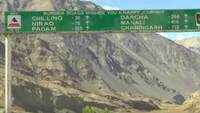
Mangaluru: Although Covid-19 may have pushed the brakes on several activities the world over, the pandemic has certainly opened hitherto unexplored vistas in the field of research, particularly when it comes to medical technology. In one such instance, the Nitte University Centre for Science Education and Research (NUCSER) has been endowed with a grant for developing a Covid-19 test kit that will work equally effectively with nasal swab and saliva samples.
Director for research and development at NUCSER Dr Indrani Karunasagar admitted to TOI that researchers in several countries were working on the development of similar test kits. “Collection of swabs from the nasopharynx – the upper part of the pharynx that runs up to the nasal cavity – may entail some problems. This procedure entails sticking a 10cm-long stick along the floor of the nasal cavity, all the way up the back wall, where it is swirled to get the swab to stick, and drawn out after a few seconds. This procedure is not very comfortable neither is the experience pleasant to either the patient or those conducting it. Collection of saliva is easier,” Dr Indrani said.
“We understand that last month, the U.S. Food and Drug Administration granted emergency use authorization for two tests that sample saliva instead of nasal swab, and more innovations are likely after FDA relaxes rules to allow new tests to be adopted more quickly. They also confirmed that saliva tests will give a better indication of who is most contagious. The saliva sample would be collected and tested for PCR analysis. Researchers in Hong Kong and China could identify a good association between detection of the virus from saliva and nasal swabs with the virus. The Israeli scientists have come up with a saliva testing kit,” she said.
Prof Iddya Karunasagar, senior international food safety consultant, too batted for testing with saliva, which he said would be economical and was logistically more feasible. “The grant for the project has been given from the department of science and technology to Dr Biswajit and Dr Praveen Rai of NUCSER to develop a nucleic acid-based test that, if successful, will cost Rs 300 per individual. The RT-PCR test costs ten times as much. Moreover, the equipment required for conducting tests with saliva is minimal compared with what is necessary now,” said Prof Karunasagar, adding that, with the support of Nitte (deemed to be University) chancellor Vinay Hegde, vice-chancellor Dr Satheesh Kumar Bhandary and the scientists, they were looking to present the test kit to the Indian Council of Medical Research for validation in six months.
Director for research and development at NUCSER Dr Indrani Karunasagar admitted to TOI that researchers in several countries were working on the development of similar test kits. “Collection of swabs from the nasopharynx – the upper part of the pharynx that runs up to the nasal cavity – may entail some problems. This procedure entails sticking a 10cm-long stick along the floor of the nasal cavity, all the way up the back wall, where it is swirled to get the swab to stick, and drawn out after a few seconds. This procedure is not very comfortable neither is the experience pleasant to either the patient or those conducting it. Collection of saliva is easier,” Dr Indrani said.
“We understand that last month, the U.S. Food and Drug Administration granted emergency use authorization for two tests that sample saliva instead of nasal swab, and more innovations are likely after FDA relaxes rules to allow new tests to be adopted more quickly. They also confirmed that saliva tests will give a better indication of who is most contagious. The saliva sample would be collected and tested for PCR analysis. Researchers in Hong Kong and China could identify a good association between detection of the virus from saliva and nasal swabs with the virus. The Israeli scientists have come up with a saliva testing kit,” she said.
Prof Iddya Karunasagar, senior international food safety consultant, too batted for testing with saliva, which he said would be economical and was logistically more feasible. “The grant for the project has been given from the department of science and technology to Dr Biswajit and Dr Praveen Rai of NUCSER to develop a nucleic acid-based test that, if successful, will cost Rs 300 per individual. The RT-PCR test costs ten times as much. Moreover, the equipment required for conducting tests with saliva is minimal compared with what is necessary now,” said Prof Karunasagar, adding that, with the support of Nitte (deemed to be University) chancellor Vinay Hegde, vice-chancellor Dr Satheesh Kumar Bhandary and the scientists, they were looking to present the test kit to the Indian Council of Medical Research for validation in six months.

Coronavirus outbreak
Trending Topics
LATEST VIDEOS
City
 SSR death probe: Sushant Singh Rajput’s domestic help Dipesh Sawant arrested by NCB
SSR death probe: Sushant Singh Rajput’s domestic help Dipesh Sawant arrested by NCB  Shocking: Actor Samyuktha Hegde heckled for 'inappropriate' attire amid workout in Bengaluru park
Shocking: Actor Samyuktha Hegde heckled for 'inappropriate' attire amid workout in Bengaluru park  SSR death probe: After Showik Chakraborty’s arrest, NCB to summon Rhea Chakraborty to join investigation
SSR death probe: After Showik Chakraborty’s arrest, NCB to summon Rhea Chakraborty to join investigation  India-China stand-off: BRO's new highway untraceable by enemy, gives 365-day connectivity
India-China stand-off: BRO's new highway untraceable by enemy, gives 365-day connectivity
More from TOI
Navbharat Times
Featured Today in Travel
Quick Links
Kerala Coronavirus Helpline NumberHaryana Coronavirus Helpline NumberUP Coronavirus Helpline NumberBareilly NewsBhopal NewsCoronavirus in DelhiCoronavirus in HyderabadCoronavirus in IndiaCoronavirus symptomsCoronavirusRajasthan Coronavirus Helpline NumberAditya ThackerayShiv SenaFire in MumbaiAP Coronavirus Helpline NumberArvind KejriwalJammu Kashmir Coronavirus Helpline NumberSrinagar encounter
Get the app



